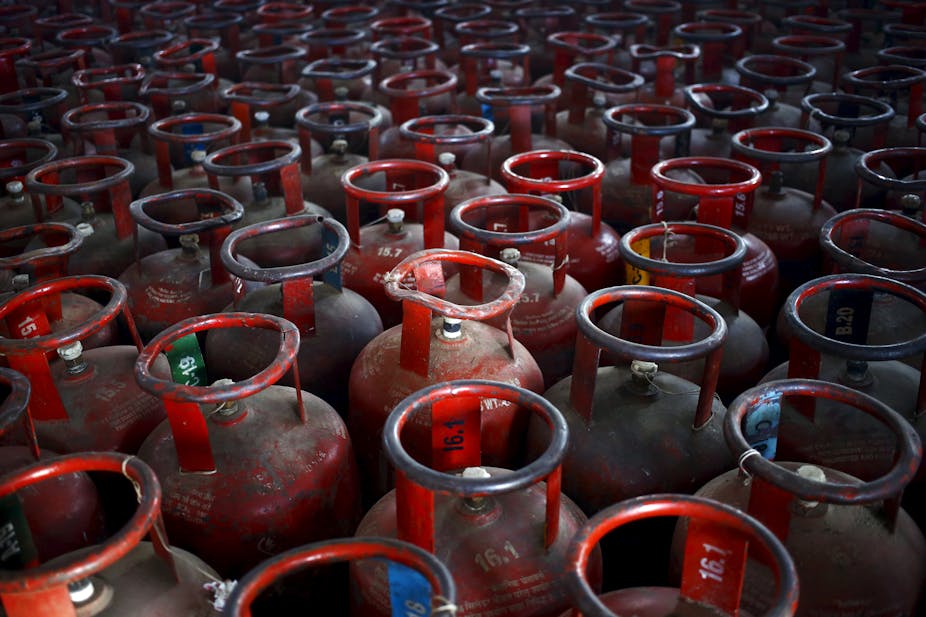Hardly anyone paid attention when Trinidad and Tobago Prime Minister Dr Keith Rowley visited Ghana early in May 2016. The lack of interest was probably because of economic realities. Major markets like the US and China are looking less towards West African and Caribbean nations as energy producers. There’s been a dramatic collapse in commodity prices.
But – with a clear approach that considers the political costs of change and some clever, targeted policies focused particularly on technological innovation in the energy and other sectors – Ghana and Trinidad and Tobago could become important allies. They have much to learn from each other.
Stars on the wane
Both countries had positive rates of growth from the 2000s – more than 8% for Trinidand and Tobago (up to 2008) and 6.6% in Ghana (to the present). These were driven by high commodity prices and favourable global conditions.
Trinidad and Tobago was known in energy circles as a major exporter of liquefied natural gas to the US. It supplied between 75% and 80% of all the US’s liquefied natural gas needs until 2008. Then fracking became more viable and new investments in domestic energy production took off in the US. In 2015 the now sacked governor of Trinidad and Tobago’s Central Bank declared that the country was in a recession.
Meanwhile, popular media touted Ghana as an integral part of an “Africa Rising” narrative. But this narrative has also lost steam.
These situations are of course connected to local policy and politics as well as international politics. The US is now producing greater energy supplies for domestic consumption and export. China’s slowdown from two decades of high growth is also being felt.
So how can Ghana and Trinidad and Tobago adapt – individually and in partnership? What can Ghana, the younger of the two countries when it comes to its energy sector, learn from Trinidad and Tobago’s successes and failures?
Possibilities for partnerships
There are great possibilities for innovation in the two countries’ economies. Hydrocarbons are important to both economies: they constitute more than 80% of exports and 60% of foreign exchange earnings in Trinidad and Tobago, and 26% of Ghana’s exports.
Trinidad and Tobago has more than a century of experience in energy production and refining. It even helped pioneer certain techniques in gas exploitation and has invested heavily in improving local skills. The country could benefit greatly if it starts exporting skills to help build Ghana’s relatively new energy sector.
There’s a potential hitch: Trinidad and Tobago has lost opportunities in the past for connecting the oil and gas sectors with other economic sectors. Its technology policy approach has remained laissez-faire since the 1980s, so it’s lagged behind and is no longer a major innovator. From this perspective, the model that it has developed over the years may not be entirely appropriate for Ghana, given the structural changes in global energy markets. If Ghana wishes to gain the most from this sector, and generate more value in other sectors, a slightly different approach is required.
Globally, the hydrocarbon sector is technologically mature, with established processes and techniques. This leaves little opportunity for technological innovation by smaller producers like Trinidad and Tobago, and Ghana. Both countries currently import technology through multinationals. Ghana’s emerging sector particularly is dominated by multinational firms. Its political structure has contributed to inequality in the share of income.
All of these factors show that focused, sector-specific policies are crucial. These must focus on marshalling new investments and promoting linkages with under-the-radar projects. I have discovered in my own research that state investment was instrumental in advancing low-profile projects in telecommunications; iron and steel; and information and communication technologies developed at the University of the West Indies in partnership with state enterprises in Trinidad and Tobago.
A negative case in point is the Tamana InTech Park, which was conceived in the early 2000s as a Caribbean-styled Silicon Valley. After several years of government expenditure, there have been few notable private investments. Nor has the project generated innovative products or capabilities. It remains alive, but its work is hampered by weak policy direction, political struggles and the legacy of “free-market” policies adopted since the late 1980s.
Likewise, new innovation hubs have sprung up in Ghana but have little policy support. A recent study about the country’s innovation capacity has, however, shown some activity – in low-tech firms. The problem is that without serious government support or strategic focus, there’s little promise of long-term growth.
Policy turnaround is crucial
There is some chance for a policy turnaround – in energy and in other sectors. An effective partnership between the two countries in technology promoting activities, such as the International Fine Cocoa Innovation Centre at the University of the West Indies in Trinidad, can be fostered. Ghana is still considered a major cocoa exporting country – the second largest globally. If not closely monitored, the cocoa sector may suffer the same technological fate as the oil and gas sector.
While the energy sector remains relevant for the foreseeable future in terms of revenue for both Ghana and Trinidad and Tobago, innovation opportunities lie elsewhere. This effort must be directly driven by a coalition of local state officials, university stakeholders, new sector players and civil society. It can be harnessed by local firms through a renewed approach that’s focused on low-hanging fruit to effect dynamic transformation in both Ghana and the island nation.

